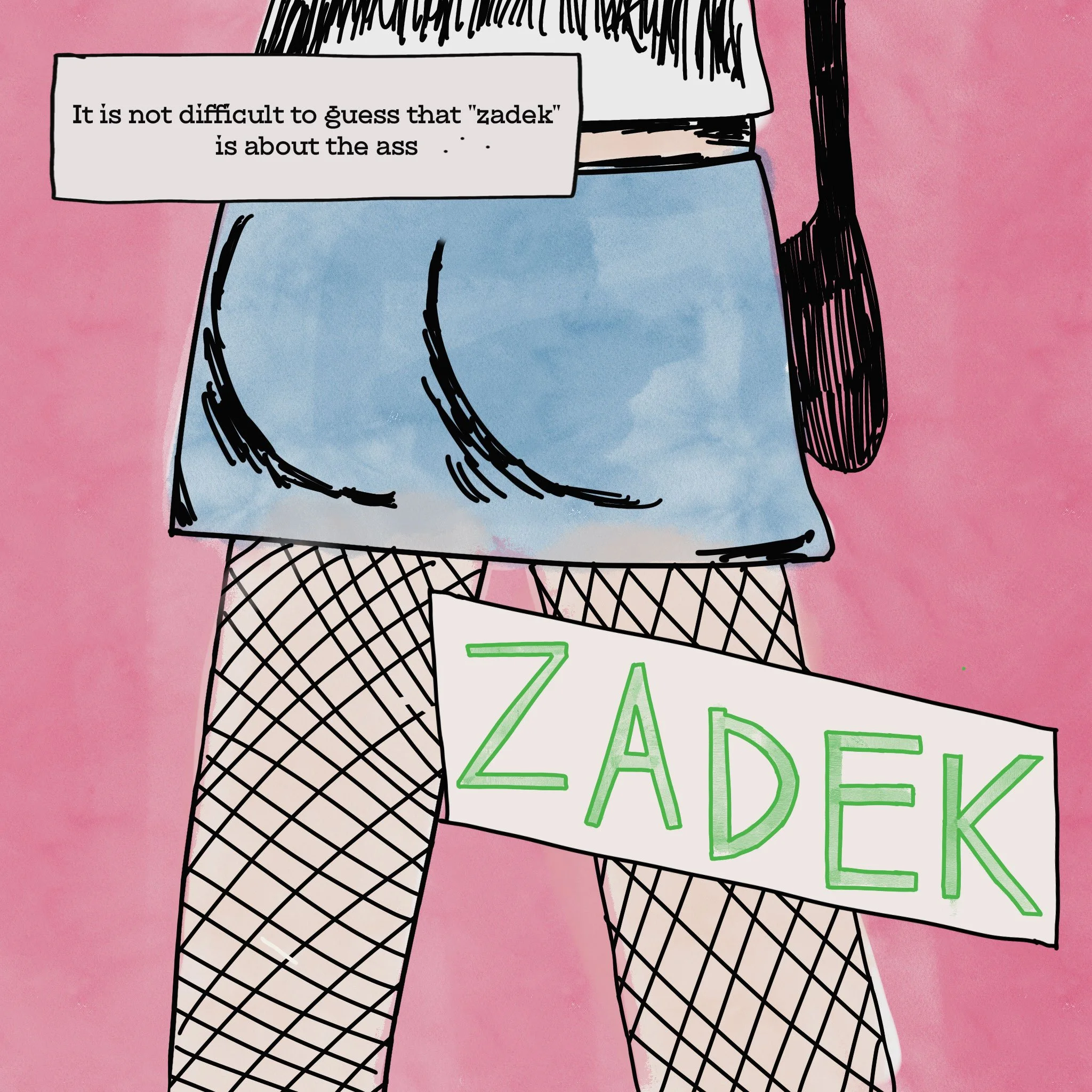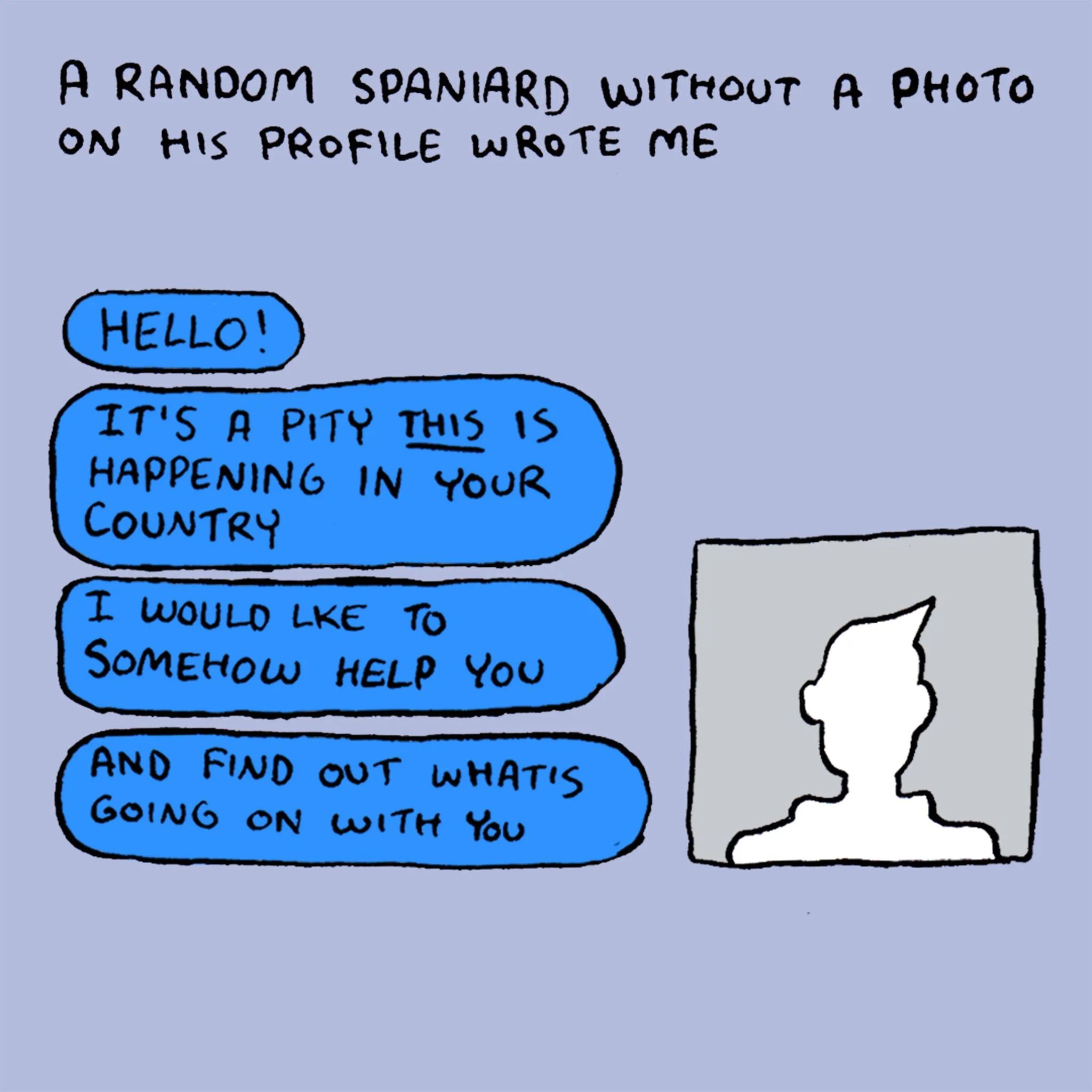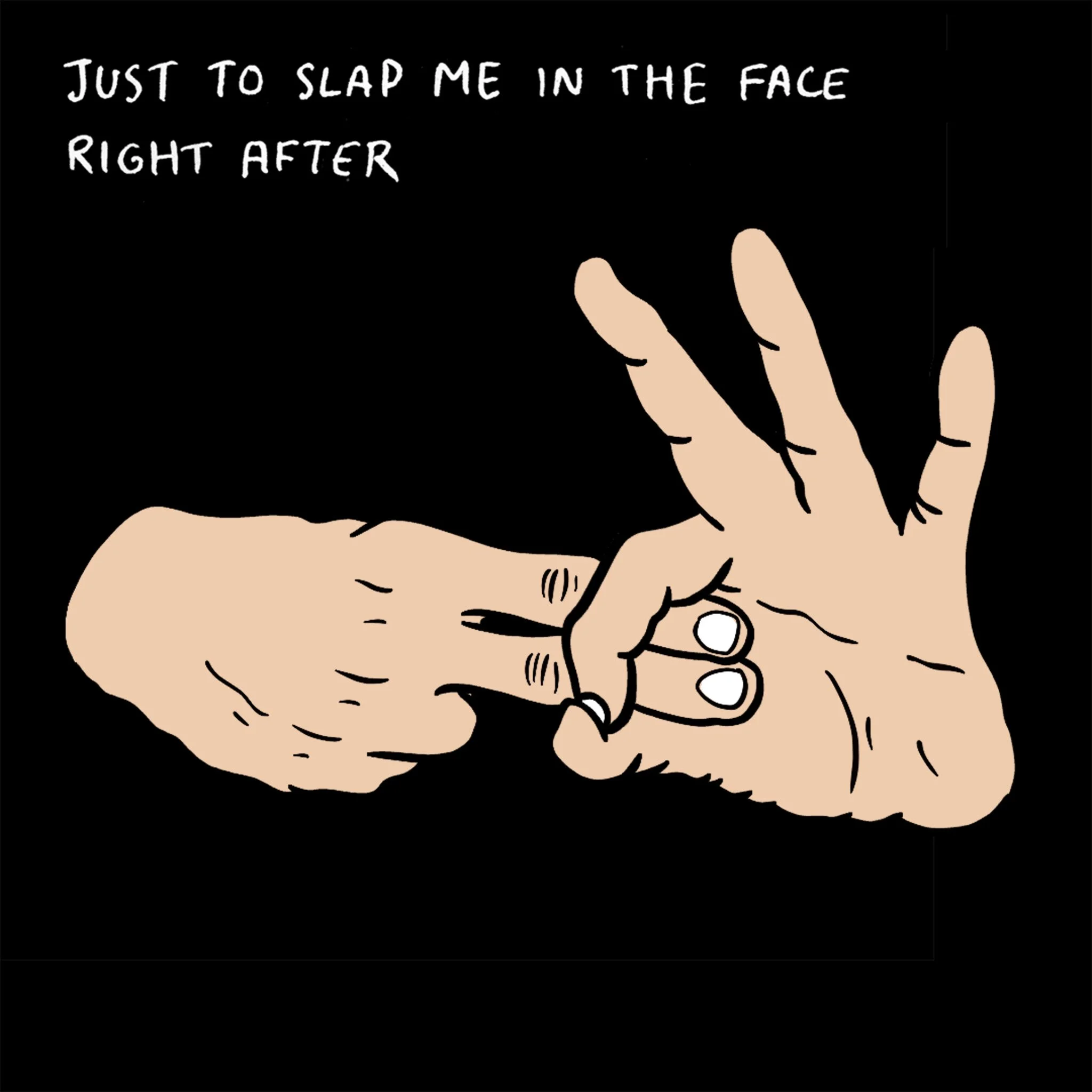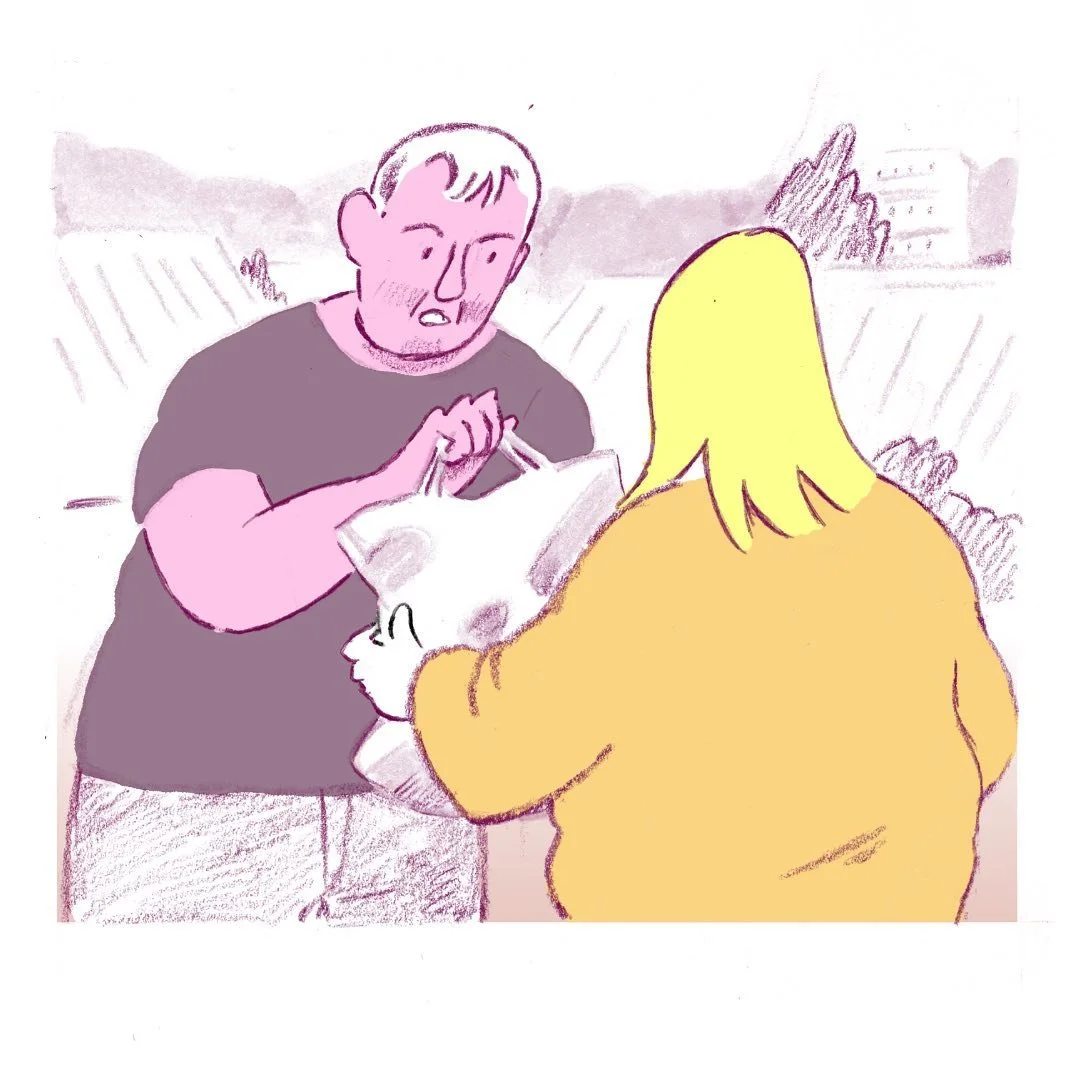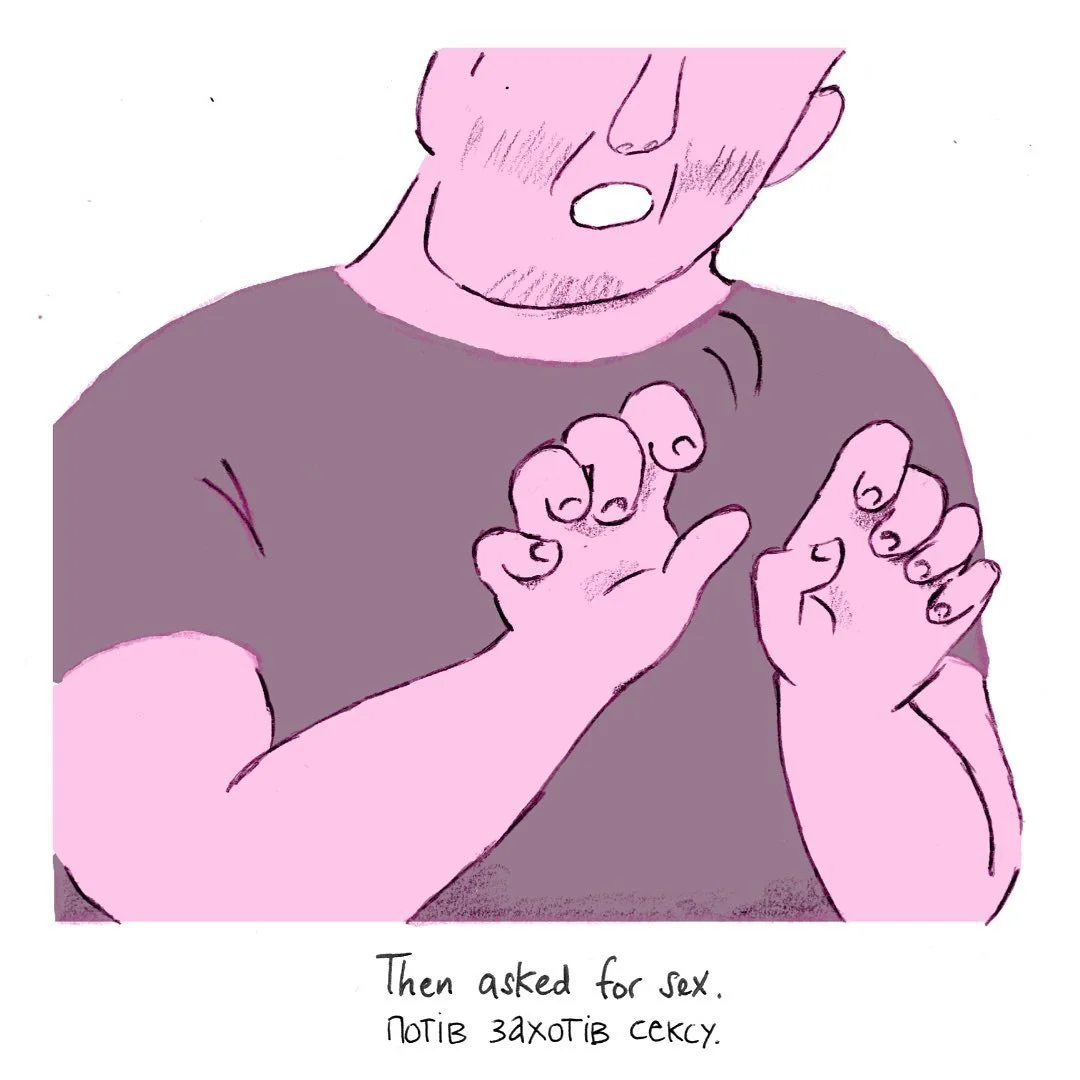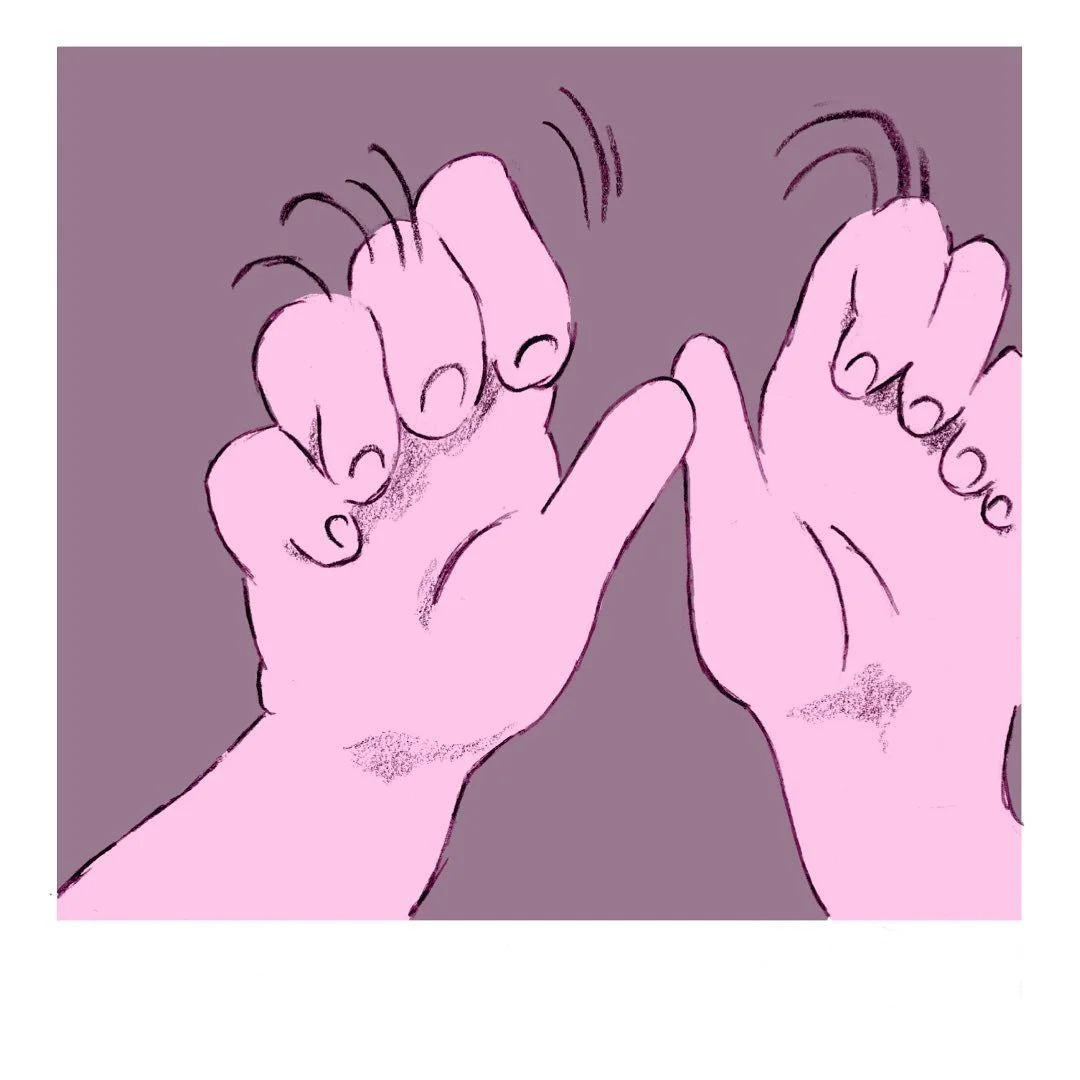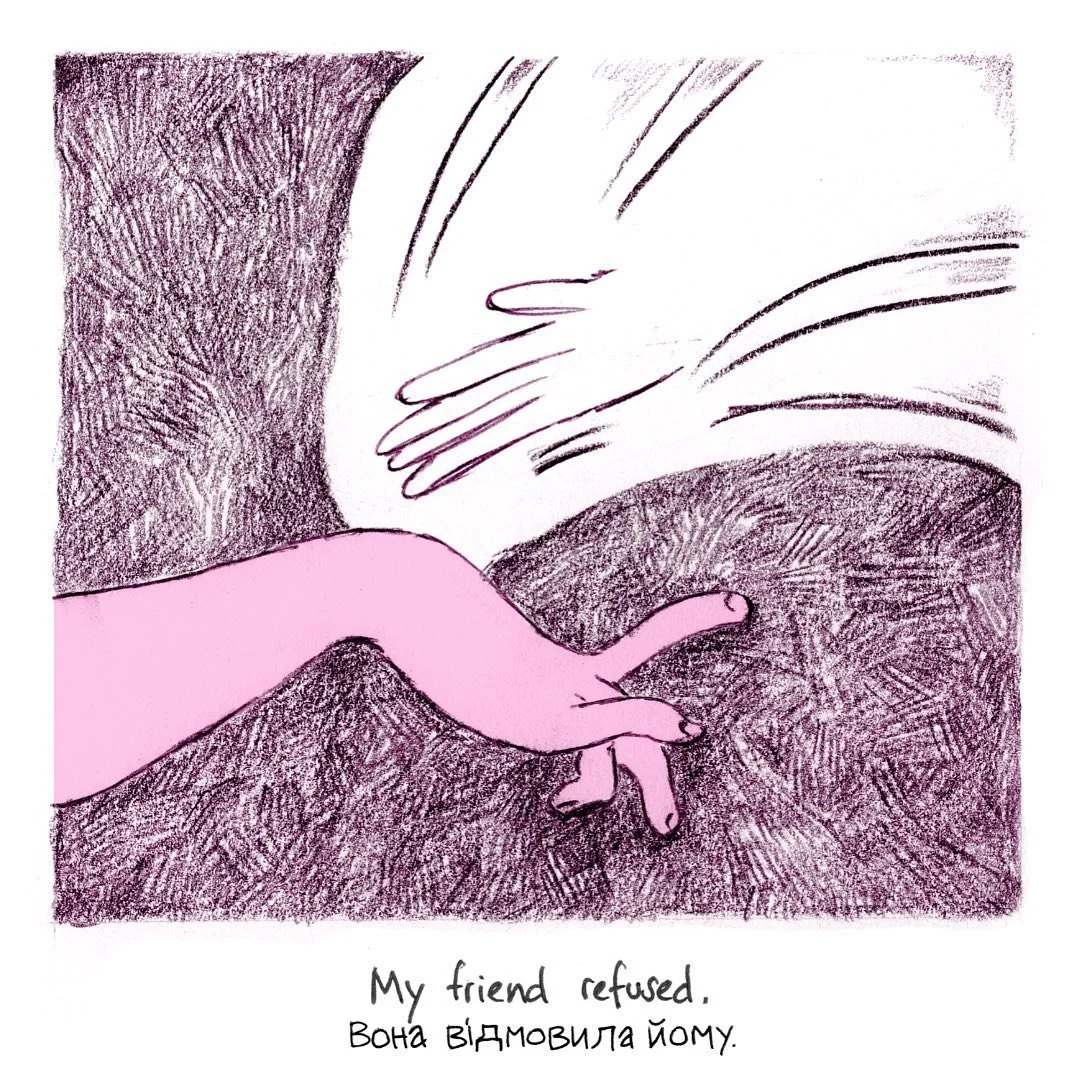I Don’t Need First Sexual Aid: Art Against the Sexual Harassment of Ukranian Refugees
Make it stand out
As the Russo-Ukrainian war continues to increase in scale, almost 6 million Ukrainian refugees find themselves seeking shelter and rebuilding their lives elsewhere in Europe. In contrast to previous refugee crises, European populations and governments seem eager to help. But even this time around, not all of these offers of aid are unconditional.
Many Ukrainian refugees experience the support to be dependent on an expectation of “intimate gratitude” – sex and attention in return for a roof, some gifts, or a helping hand. Horrified by how commonplace these experiences are and the fear that people have of speaking up about them, young Ukrainian artist Nataliia Oliferovych started #idontneedfirstsexualaid: an art project that re-tells these anonymously submitted experiences through the pop culture-political medium of comics. By changing the discourse, the project aims to provide a space of healing, support and exchange for refugees encountering sexual harassment and coercion.
I met Nataliia for the first time in Lisbon last summer. She had been on holiday with her friends and a family member back home had encouraged them to stay a couple extra weeks. A day after the flight to Kyiv that they were originally supposed to take, the news exploded with the outbreak of a full-scale war and Nataliia’s holiday became a nightmare as she navigated the sudden separation from her family, friends and homeland. Some weeks after we met, she moved to Leipzig to enrol in the art university there. From the distance of social media I saw her create works that spoke of the violence to the Ukrainian population. Strong, colourful pieces, often sold in one project after another to support families at home. Pieces that built bonds and reverberated with others who were scared and suffering. Pieces that brought solace. Almost a year later, I saw that she’d started #idontneedfirstsexualaid.
___STEADY_PAYWALL___
Comic: Alea Prullansky
When I call Nataliia to ask about how the project began, she tells me about how many stories of sexual harassment and coercion she heard once she’d moved to Germany. “What filled me with most horror was the way that people told these stories, and how scared they were of doing so,” Nataliia explained. Few are willing to tell their #idontneedfirstsexualaid accounts publicly, feeling ashamed and not wanting to take the limelight from the ongoing war or worry their relatives. Many have family members fighting in the army or living in fear of sexual abuse in the war area itself. “You’re expected to be grateful for where you are, that you’re safe. However, an event like that in a new country can make you feel everything but safe.”
A culture of sexual harassment, coercion and expectation not only hinders post-traumatic healing but is also structurally linked to an increase of gender-based violence. And for refugees, that number is already too high: one in five refugee women and girl experience sexual violence on their journey. Since the pandemic, these experiences became even more common and while the UN, Amnesty and many humanitarian groups have raised concern, safeguarding structures are virtually non-existent with only 0.12% of all humanitarian funding used to prevent and respond to gender-based violence.
Part of the reason is a widespread, age-old objectification of “a woman in need.” This understanding has been further fostered in recent decades by a popular culture that wraps dominance into a vocabulary of aid. For Ukrainian refugees, this experience is haunted by a widely accepted Western fetishisation of Eastern European women’s bodies – itself a relic of the Cold War era – furthered by expectations of doll-like beauty in oligarch-led post-Soviet countries to, it would seem, Western men’s delight.
Comic: Anke
Since the outbreak of the war, this fetishisation has become focused on Ukrainian women, including online statements creepily complimenting Ukrainian women’s looks (“More importantly, Ukrainian women are hot / The 🇺🇸 could use some more hot chicks” reads one tweet).
Reports like these aren’t incidental: recent research shows a 300% global increase of online searches for sexually exploitative terms related to Ukrainians, such as “Ukrainian escorts” and “Ukrainian porn,” since the beginning of Russia’s large-scale invasion in 2022.
#idontneedfirstsexualaid draws attention to how widespread this objectification is in the form of easily shared comics, each illustrated by a different artist. By inviting anonymously submitted stories of expectations of sex as a token of gratitude, the project has the potential to change the discourse and provide a space of healing and empowerment in its stead.
“When I started this, I kept saying how I’m not that sensitive to these kinds of things,” Nataliia tells me. “But then I remembered how when I went to Paris during the time that I was still figuring out what to do with my life far away from my family and friends. I got an offer to stay in a room and double checked beforehand if I would really have my own room. The man who offered it said yes. And then it turned out that he’d actually rented an airbnb with a double bed for the two of us. I’d forgotten all about it until now, so I guess I also didn’t really know how to speak up about these things.”
Today, #idontneedfirstsexualaid is still in its early phase. “I’d like to see how the project will develop organically in order to understand how it can be of most help,” Nataliia says. “At the moment, we need more people to see it and share it – if more people see it, more people will be able to share their stories and more people will perhaps understand the fear that many of us have. Then can we have a real impact.”
Words: Maria Kruglyak | Cover image: Liza Ulyanova
You can read the stories in English and Ukrainian on@idontneedfirstsexualaid or idontneedfirstsexaid.website, where you can also download printable posters to put up in your neighbourhood. While the stories are focused on Ukrainian women refugees, they are open to refugees from everywhere and of all genders; the focus stems from the founding artist’s own experience and context.

